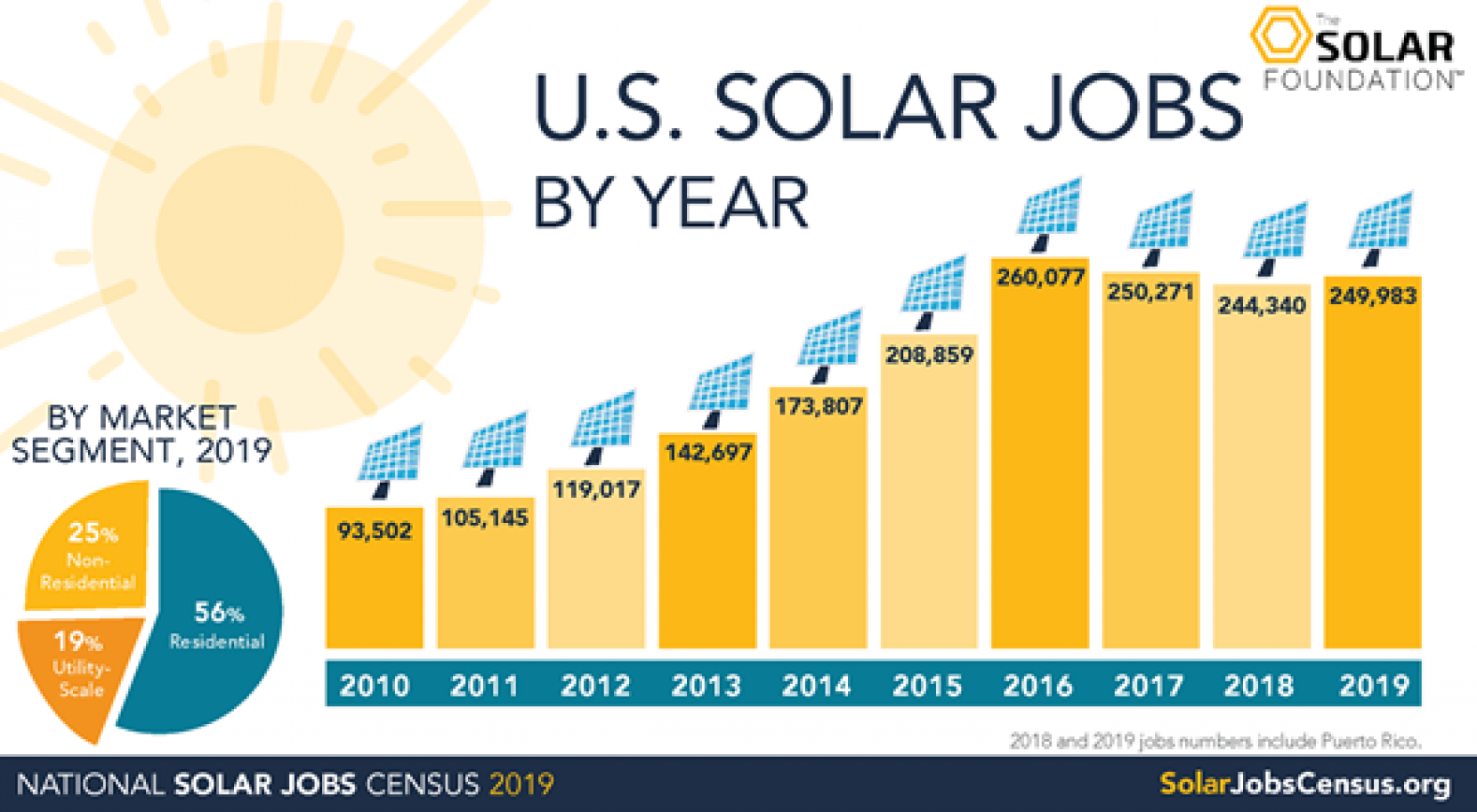Welcome to our guide on solar energy education! With the increasing demand for clean energy, solar energy has emerged as a powerful player in the global energy landscape.
To meet this demand and propel the industry forward, specialized educational programs have been developed to equip aspiring professionals with the necessary expertise.
In this article, we'll dive into the exciting world of training programs and courses designed to enhance your knowledge and skills in solar energy.
Whether your interests lie in becoming a solar installer, system designer, sales representative, or simply understanding the intricacies of solar technology, we've got you covered.
What Types Of Courses Can You Do To Enhance Your Solar Knowledge?

When it comes to solar energy education, there are various training programs and courses available to help you gain knowledge and skills in this field.
These programs aim to equip individuals with the practical know-how to understand, install, and maintain solar energy systems.
Let's look at some of the types of training programs and courses in solar energy.
First off, we have solar installation training programs. These focus on teaching you the hands-on aspects of installing solar panels, including things like site assessment, system design, electrical wiring, and safety procedures.
They often provide you with certifications like the NABCEP Solar PV Installer Certification.
If you gravitate more toward the technical side, you might consider solar design and engineering courses.
These delve into the nitty-gritty details of solar energy systems, covering topics like system sizing, selecting the right solar panels, inverter technology, and electrical design. They give you the skills to design efficient solar energy systems.
For those looking for a broader understanding of renewable energy, there are renewable energy technology programs. These cover various renewable energy sources, including solar power.
You'll learn about solar thermal systems, photovoltaics, wind power, energy storage, and how to integrate them into the grid. These programs often offer a mix of theory and hands-on training.
If the business side interests you more, there are courses on solar sales and marketing.
These focus on sales strategies, marketing techniques, financing options, and acquiring customers in the solar industry. You'll gain the skills to effectively promote and sell solar energy systems.
For those who want to understand the policies and regulations surrounding solar energy, there are courses on solar policy and regulation.
These explore government policies, incentives, permitting processes, and interconnection standards. You'll gain insights into the policy landscape and how it affects the solar industry.
Lastly, don't forget about continuing education and professional development programs. These are great for professionals already working in the solar energy sector.
They cover emerging technologies, code updates, best practices, and industry trends to keep you up to date.
There are many organizations and institutions that offer these training programs and courses, such as solar industry associations, community colleges, trade schools, universities, and specialized renewable energy training centers.
It's important to research and find reputable programs that align with your interests and career goals.
So, whether you're interested in getting your hands dirty with installations, diving into the technical details, or exploring the business and policy aspects of solar energy, there's a training program or course out there for you!
What Is The Future Outlook Like For Careers In Solar Energy?

A study done by the International Renewable Energy Agency (IRENA), the renewable energy sector, including solar energy, employed approximately 11.5 million people worldwide in 2019.
This marked a significant increase from previous years, highlighting the industry's potential for job creation.
In the United States, the solar industry has experienced substantial growth over the past decade.
The National Solar Jobs Census conducted by The Solar Foundation reported a 167% increase in solar jobs between 2010 and 2020, with over 231,000 jobs in the sector.
The U.S. Bureau of Labor Statistics estimates a rapid growth rate of 51% for employment of solar photovoltaic (PV) installers in the United States from 2019 to 2029.
The growth rate here is much higher than the average for all occupations, indicating strong job prospects in this field. The positive outlook for solar energy careers extends beyond the United States.
Countries like India have set ambitious renewable energy targets, such as achieving 100 GW of solar capacity by 2022.
This goal creates a considerable demand for skilled professionals within the solar industry.
Final Thoughts
In conclusion, the future outlook for solar energy jobs is exceptionally promising due to several key factors:
- Rapid growth and increasing market demand as the world transitions to clean energy sources.
- Job creation and economic impact, providing opportunities across various roles and contributing to economic growth.
- Government support and policy incentives driving the adoption of solar energy.
- Technological advancements and innovation leading to the development of cutting-edge solar technologies and the need for skilled professionals.
- The global energy transition towards renewable sources, with solar power playing a vital role and creating a demand for solar installations and services.
- The encouragement of innovation and entrepreneurship within the solar industry, fostering job creation and driving further advancements.
- The social and environmental impact of solar energy jobs, contributing to a cleaner and more sustainable future.
The combination of these factors creates a favorable landscape for career opportunities in the solar industry, shaping a sustainable future while offering fulfilling and impactful career paths.






































































